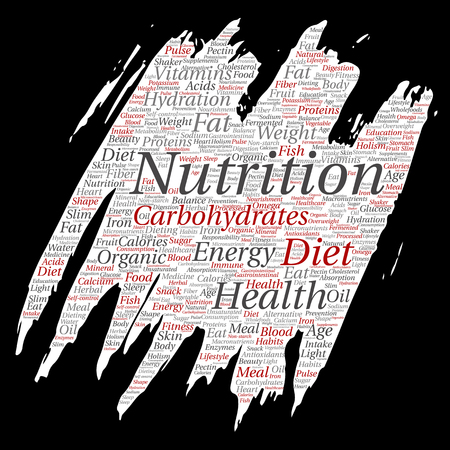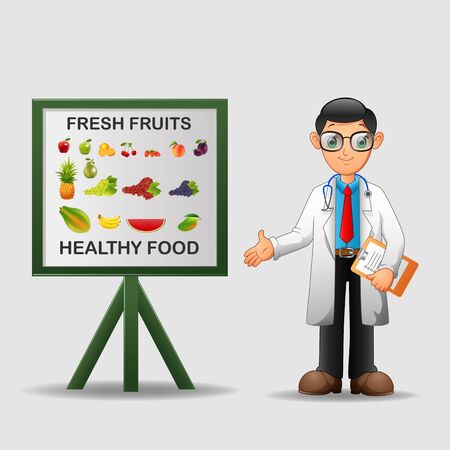Introduction to Veganism in Britain
Veganism has blossomed in Britain over recent years, weaving itself into the fabric of daily life and gaining attention across the nation. What once may have seemed a niche lifestyle choice is now embraced by people from all walks of life, from bustling city centres to tranquil countryside villages. This gentle shift has been inspired not only by health and wellness trends but also by increasing awareness of environmental issues and animal welfare. British attitudes towards veganism are evolving, with plant-based meals now a familiar sight in supermarkets, high street cafés, and even traditional pubs. Still, while curiosity and acceptance are growing, many myths and misunderstandings remain about what it truly means to follow a vegan diet in the UK’s unique cultural context. In this article, we’ll explore some of the most common misconceptions about veganism in Britain and uncover the real story behind this nourishing way of living.
Myth: Vegan Diets Lack Essential Nutrients
One of the most common concerns about veganism, especially here in Britain, is the idea that a plant-based diet cannot provide all the essential nutrients our bodies need. However, with a bit of knowledge and a focus on wholesome foods, vegans can enjoy a balanced and nourishing diet using ingredients readily available from British supermarkets and local markets.
Addressing Nutritional Adequacy
Protein, iron, and vitamin B12 are often cited as nutrients that may be lacking in vegan diets. Yet, there are many traditional British vegan-friendly foods that serve as excellent sources of these nutrients. By embracing a variety of plant-based staples, it’s entirely possible to meet your nutritional needs without compromising on flavour or tradition.
Traditional British Vegan Sources of Protein, Iron, and Vitamin B12
| Nutrient | Traditional British Vegan Source | Example Usage |
|---|---|---|
| Protein | Lentils, garden peas, broad beans, oats | Lentil stew, pea soup, oat porridge |
| Iron | Spinach, watercress, wholemeal bread, pumpkin seeds | Spinach salad, watercress sandwiches, seeded bread snacks |
| Vitamin B12* | Fortified breakfast cereals, fortified plant milks, Marmite | Bowl of fortified muesli with oat milk, toast with Marmite |
*Note on Vitamin B12:
Vitamin B12 is not naturally found in plants but is added to many everyday British staples such as breakfast cereals and plant-based milks. Including these fortified foods makes it easy for vegans to maintain healthy B12 levels.
By planning meals around these accessible and familiar ingredients, British vegans can easily ensure they’re getting a nourishing balance of protein, iron, and vitamin B12—debunking the myth that vegan diets are nutritionally inadequate.

3. Myth: Veganism is Too Expensive in the UK
One of the most persistent misconceptions about veganism in Britain is that it’s an expensive lifestyle, only accessible to those with deep pockets. However, this simply isn’t the case. With a little creativity and a focus on locally sourced ingredients, enjoying a plant-based diet can be both affordable and nourishing.
Contrary to popular belief, many staple vegan foods are among the most budget-friendly items available at local supermarkets and greengrocers. Lentils, beans, oats, seasonal vegetables, potatoes, and whole grains are not only economical but also form the backbone of many traditional British meals. Shopping at local markets or opting for supermarket own-brand products often reduces costs further, while also supporting regional producers.
Exploring Budget-Friendly Vegan Options
British cuisine already boasts a range of naturally plant-based dishes—think vegetable stews, soups, and jacket potatoes topped with baked beans. Swapping out animal products for pulses or mushrooms can be surprisingly cost-effective. What’s more, meal prepping and bulk cooking can help stretch your grocery budget throughout the week.
Avoiding Processed Alternatives
It’s true that some speciality vegan products—such as meat substitutes or dairy-free cheeses—can be pricey. But these are by no means essential for a balanced vegan diet. By focusing on wholefoods and simple recipes, you can enjoy hearty, satisfying meals without breaking the bank.
Veganism for Everyone
The idea that veganism is exclusively for the well-off doesn’t reflect reality in Britain today. With growing awareness and support for plant-based living across all communities, affordable options are easier to find than ever before. Whether you’re shopping at your local Sainsbury’s or browsing a village market stall, there’s plenty of inspiration to enjoy vegan food without overspending.
4. Myth: British Traditions and Veganism Can’t Mix
One of the most persistent myths about veganism in Britain is that it stands at odds with beloved British culinary traditions. However, this couldn’t be further from the truth. In recent years, classic British dishes have been thoughtfully reinvented with plant-based ingredients, allowing everyone to enjoy the comfort of their favourites without compromising on tradition or taste.
Vegan Twists on Classic British Dishes
| Traditional Dish | Vegan Alternative | Main Ingredients Swapped |
|---|---|---|
| Full English Breakfast | Vegan Full English | Tofu scramble, vegan sausages, hash browns, grilled tomatoes, baked beans, mushrooms |
| Fish and Chips | Battered Tofu & Chips | Battered tofu or banana blossom, chips, mushy peas |
| Shepherd’s Pie | Lentil Shepherd’s Pie | Lentils and vegetables instead of minced lamb or beef |
| Sunday Roast | Nut Roast Dinner | Nut roast or mushroom wellington, roast potatoes, seasonal veg, vegan gravy |
| Cream Tea | Vegan Cream Tea | Dairy-free scones, plant-based cream and jam |
The Growing Acceptance of Plant-Based Choices in British Culture
The acceptance of vegan options in Britain has grown rapidly. Many pubs now offer hearty vegan meals alongside traditional fare. Supermarkets stock a wide array of plant-based products—making it easier than ever for families to prepare their own vegan versions of classics at home. Moreover, annual events such as Veganuary and an increasing number of vegan food festivals across the UK reflect how mainstream and celebrated plant-based living has become.
Community and Inclusivity at the Heart of Change
From cosy gatherings over a vegan roast to afternoon teas featuring dairy-free treats, British culture continues to embrace inclusivity and warmth. Sharing food remains central to social life—and today’s diverse tables welcome everyone, regardless of dietary choices.
5. Myth: Vegans Struggle to Eat Out in Britain
It’s a common misconception that following a vegan diet makes dining out in the UK challenging. In reality, Britain has seen a remarkable transformation in recent years, with an ever-growing number of cafes, pubs, and restaurants embracing plant-based menus. Whether you’re popping into a cosy high street café or enjoying a Sunday roast at your local pub, you’ll likely find delicious vegan options clearly marked on the menu. High street chains such as Pret A Manger, Wagamama, and even Greggs now offer a variety of vegan-friendly dishes, making it easier than ever to grab a quick bite while on the go.
British supermarkets have also stepped up, dedicating entire sections to plant-based products. From ready meals and dairy alternatives to fresh bakery treats, it’s never been simpler to pick up vegan essentials for home or on-the-go snacking. Many supermarkets even provide meal deal options catering specifically to vegans, ensuring convenience for those living busy lives.
This shift isn’t limited to big cities—smaller towns and rural areas are catching up, too. Local markets and independent eateries often showcase creative vegan dishes inspired by traditional British flavours, proving that plant-based eating can be both accessible and satisfying no matter where you are in the country.
With this positive change sweeping across Britain’s food scene, choosing a vegan lifestyle no longer means missing out on social occasions or tasty treats. The UK’s inclusive approach is making plant-based dining not just possible but enjoyable for everyone.
6. Conclusion: Embracing a Balanced, British Vegan Lifestyle
Adopting a vegan lifestyle in Britain need not be daunting or exclusive. By dispelling common misconceptions, we open the door to a more inclusive and nourishing way of living—one that celebrates both personal wellbeing and the richness of British food culture. Its important to approach veganism with an open mind, recognising that everyone’s journey is unique and shaped by individual needs and local traditions.
Wellbeing at the Heart
A balanced vegan diet can offer a wealth of health benefits when approached thoughtfully. Focusing on natural, seasonal produce grown across the UK, such as root vegetables, berries, oats, and pulses, makes it possible to enjoy nourishing meals that are both sustainable and satisfying. Incorporating fortified foods and wholegrains ensures essential nutrients are met without sacrificing flavour or tradition.
Inclusivity Matters
Veganism in Britain is not just about dietary choices; its also about fostering a community spirit. Whether sharing a plant-based Sunday roast or enjoying vegan scones at afternoon tea, embracing vegan options can bring people together and celebrate diversity. Local markets and high street shops now cater to a variety of tastes, making it easier than ever to find wholesome vegan alternatives to cherished British classics.
Moving Forward Together
The key is to remain curious, compassionate, and adaptable—exploring new recipes, supporting local producers, and engaging in open conversations with friends and family. By prioritising wellbeing and inclusivity, we can all contribute to a kinder, more sustainable future while savouring the very best of British cuisine.
In the end, embracing a balanced vegan lifestyle in Britain is about making thoughtful choices that support health, happiness, and community—one delicious meal at a time.


